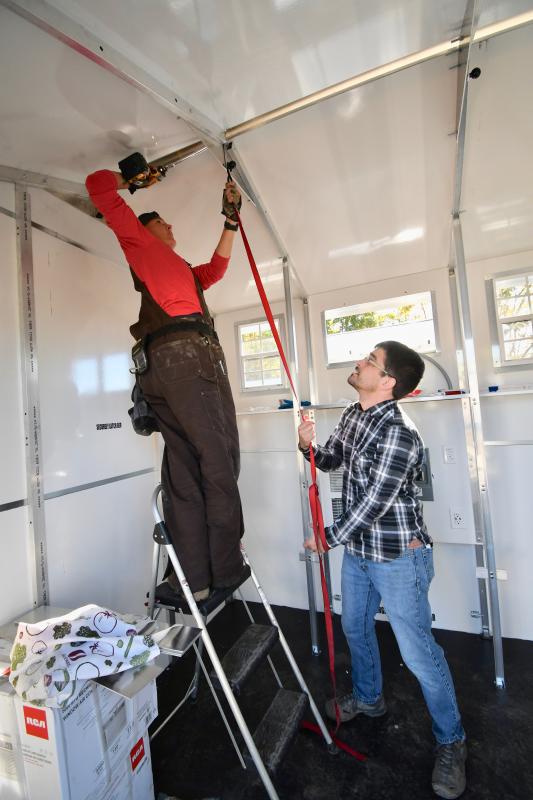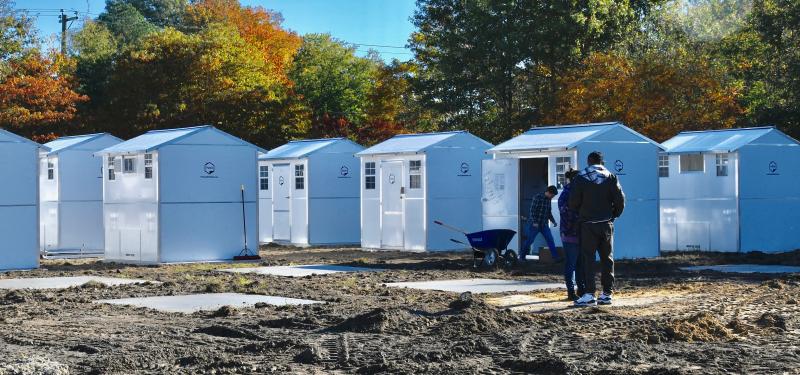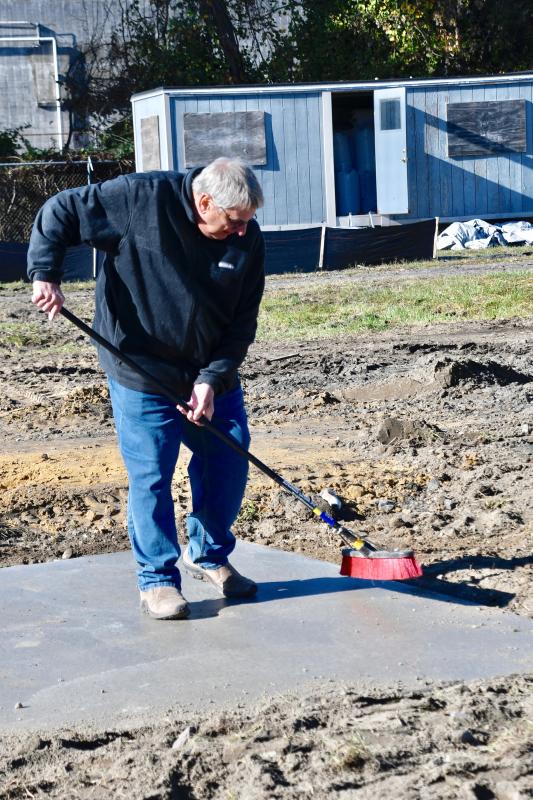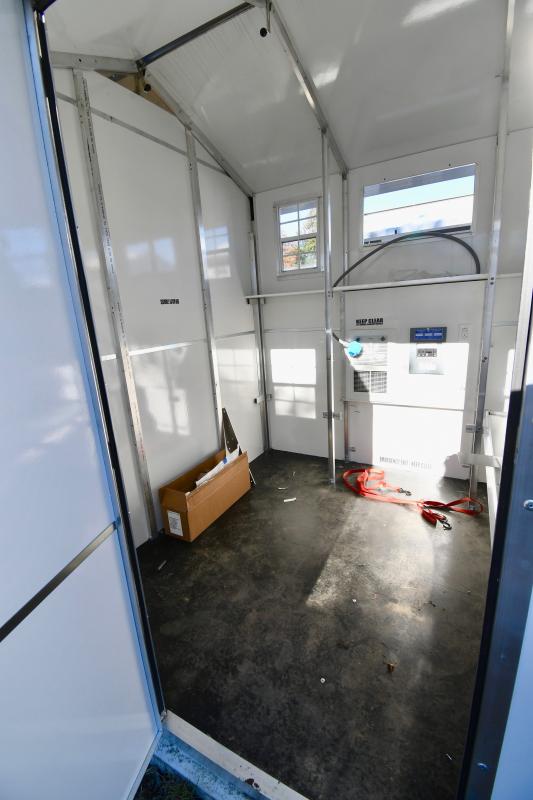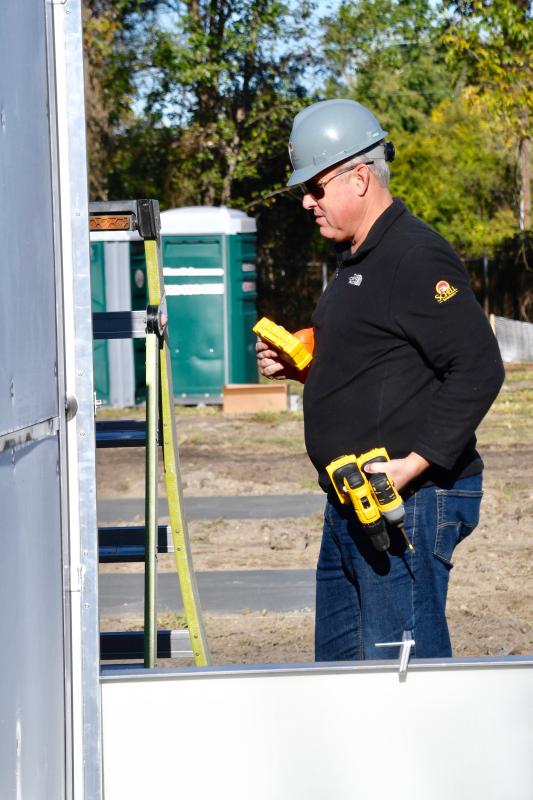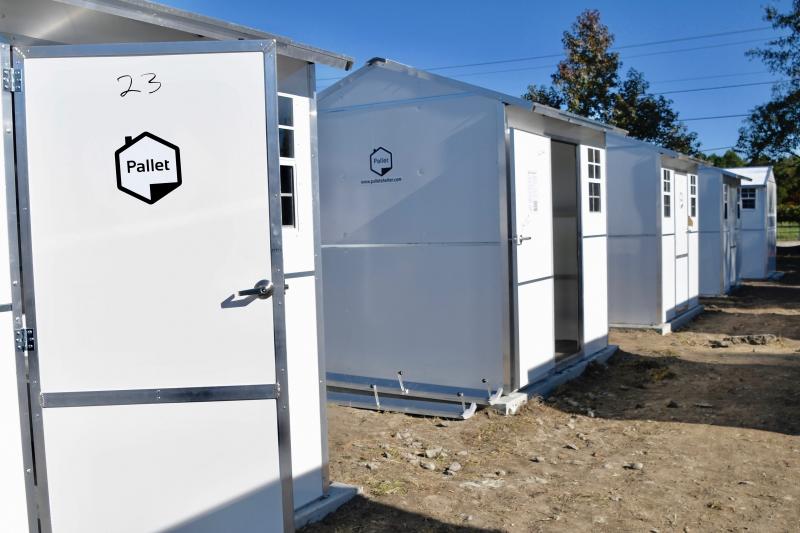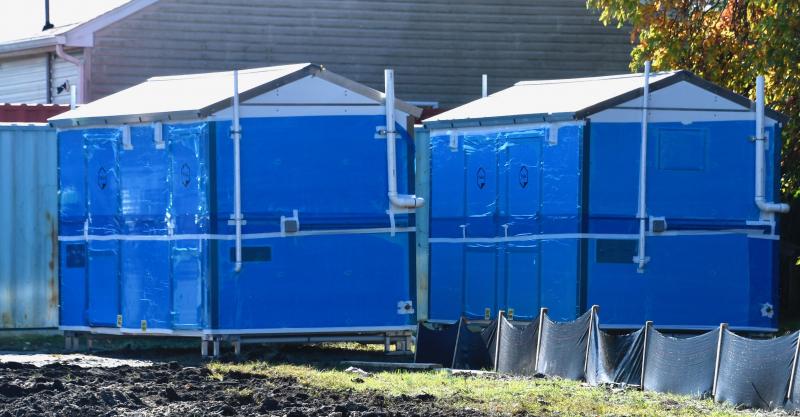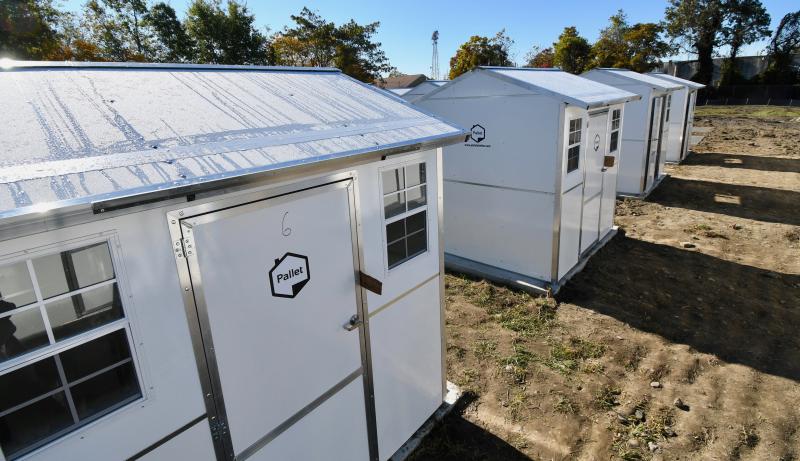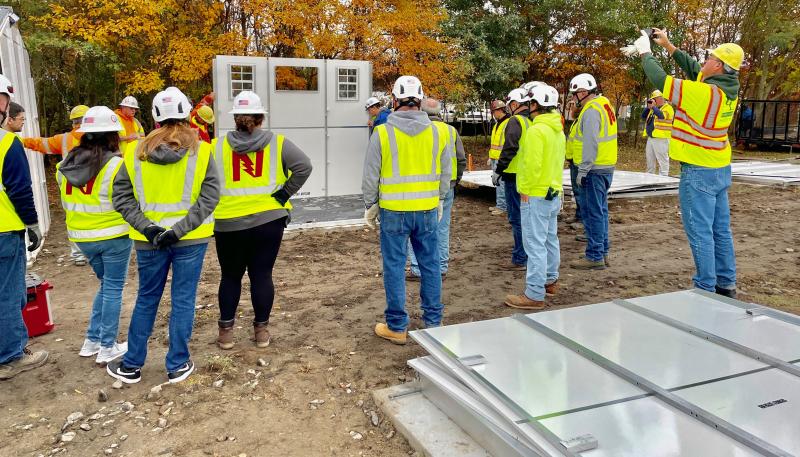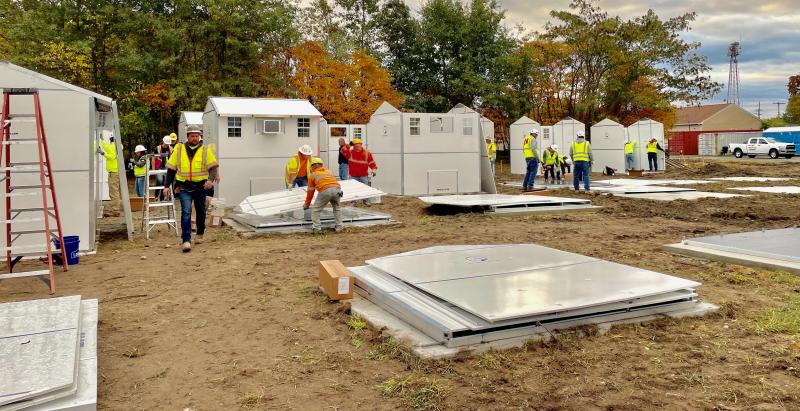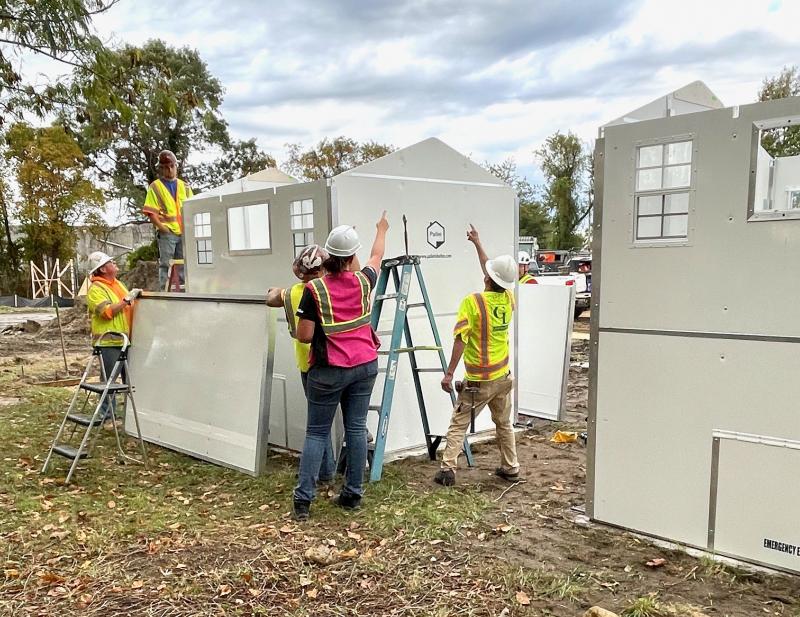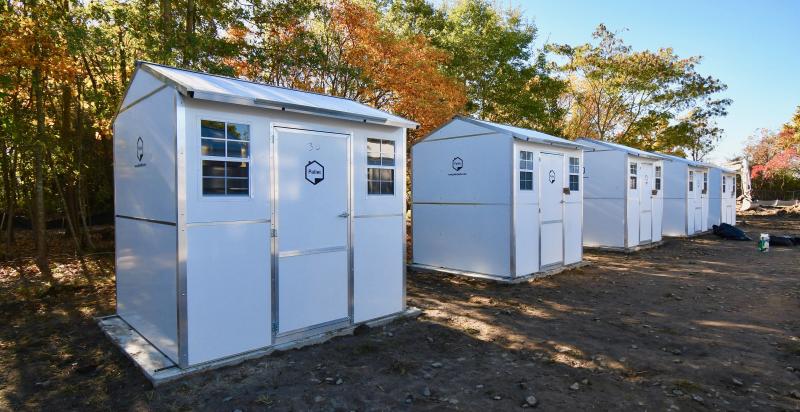
In about a month, a homeless village with 40 rapid shelter units will open in the heart of Georgetown.
In a partnership between Town of Georgetown officials and nonprofits Springboard Collaborative and First State Community Action Agency, the Pallet village on First State property off North Railroad Avenue began construction Oct. 17 when trucks from the Pallet Co. rolled onto the vacant lot.
“We'd like to serve Thanksgiving dinner here,” said Judson Malone, Springboard executive director. “We still have site work to do, but we will have warm cabins available when winter hits. Having the shelters in place, along with water, sewer and electricity, before winter arrives has been our first priority.”
Malone said support from Preston Schell, president of Ocean Atlantic, was critical to meeting that deadline as the project awaits anticipated American Rescue Plan Act funding.
Springboard is a nonprofit shelter and housing developer for people experiencing homelessness and those who are housing insecure.
Volunteer workers from Nickle Electric Company, George & Lynch and Ocean Atlantic-Schell Brothers helped assemble the units and were able to erect 29 in one day.
Helping to solve a crisis
Malone said the unsheltered population in the Georgetown area has reached a crisis. Temporary shelter in hotels or camping in the woods is not advantageous to people trying to get their lives back on track. “This village will provide a path back to self-sufficiency in safe, secure sleeping units,” he said.
Malone said there is already a list of 60 people interested in moving to the village.
Each 64-square-foot unit will contain one or two beds with bedding, heat and air conditioning, and storage space.
Included in the plan is a community building for meals, services, meetings and recreation. Since the units do not contain plumbing, two bathroom/shower units will be part of the village.
The construction of a 2,000-square-foot community building is planned for the spring, according to Mark Chura, the project manager.
Malone said meals will be provided by the First State culinary arts program. “We've been feeding a large group breakfast and lunch every Sunday since the summer,” he said.
All residents will be able to avail themselves of a multitude of services from various organizations, including First State, Georgetown Police Department, Georgetown Public Library, Department of Health and Social Services/Division of Substance Abuse & Mental Health, Department of Labor/Division of Vocational Rehabilitation, La Red Health Center, Brandywine Counseling and Community Services, and Beebe Healthcare.
A staff of case workers, security personnel and operations personnel has been hired.
The property will be fence-enclosed with a main entrance, which will be monitored by staff during the day and by professional security overnight, and include an emergency entrance for fire trucks and EMS vehicles.
Transportation is planned to help participants access off-site programs and services, and seek employment. A DART bus hub is within walking distance on Railroad Avenue.
“We don't get a lot of credit in downstate Delaware,” Malone said. “We now have an innovative project to show the rest of the state, and we plan to coordinate other villages also.”
Georgetown Mayor Bill West has been at the site every day helping to apply finishing touches to the interiors of the units. “I know there are a lot of eyes on Georgetown right now,” he said. “We are an example of a positive step to help the homeless. We hope others follow.”
He said he plans to invite town and city officials from throughout the county to a lunch and tour of the village in the near future. “Others may not be able to provide 40 units, but perhaps they can offer 10 or 20,” he said.
Campaign to raise operations funds
Horizon Philanthropic Services assembled a group of private funders including Longwood and Laffey-McHugh foundations, WSFS Bank and Highmark of Delaware, plus the support of Georgetown Town Council, to fund the purchase of the 40 shelters.
Malone said a campaign would soon be underway to raise private donations for the village's ongoing operational costs. For more information, phone 302-270-4996.
